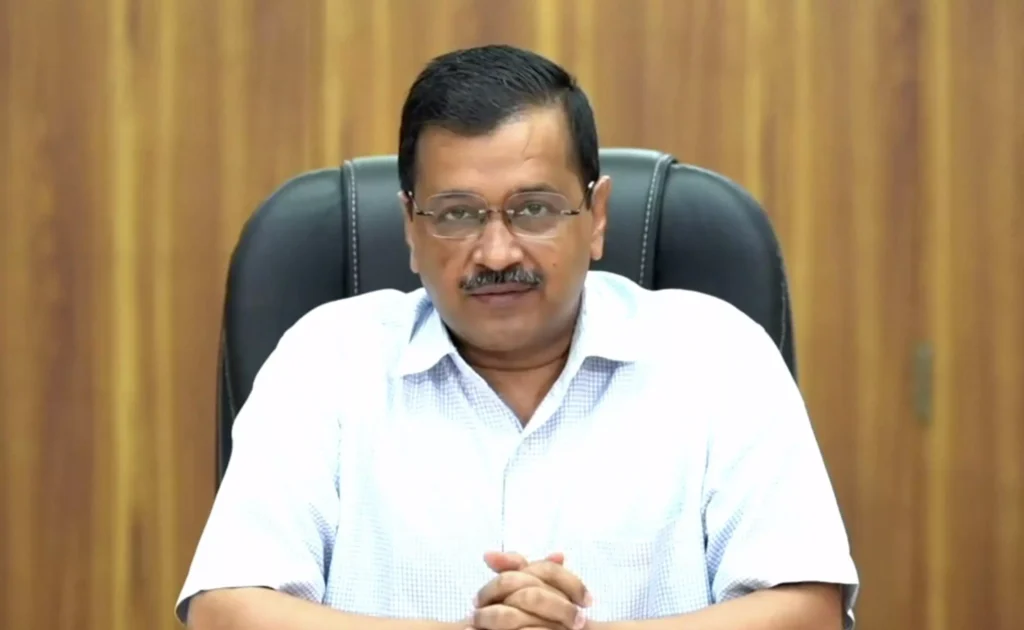By – Prakarsh Kastwar
In response to the ED’s third summons, Arvind Kejriwal stated that he was willing to comply but that the agency intended to arrest him.
New Delhi, India – According to people familiar with the development, the Enforcement Directorate (ED) has issued a new summons to Delhi Chief Minister Arvind Kejriwal, asking him to appear before it on January 18 for questioning in the money laundering probe related to irregularities in the Delhi excise policy 2021-22. Kejriwal ignored the ED’s third summons last week.
On January 4, the HT stated that the ED would resubmit the summons to the chief minister, but his persistent contempt for the summons was stalling their investigation.
In response to the ED’s third summons, which he called “illegal,” Kejriwal stated that he was willing to cooperate but that the agency’s objective was to arrest him and prevent him from campaigning.
The agency has stated that it wishes to interrogate Kejriwal about the policy’s formulation, meetings held before it was finalized, and suspicions of bribery. Kejriwal has previously rejected two summonses, on November 2 and December 22, calling them “illegal and politically motivated.”

What the ED said in the charge sheet
The ED claims that the AAP used kickbacks worth 45 crore earned by the policy as part of their assembly elections campaign in Goa in 2022 in its sixth charge sheet filed in the case on December 2, 2023, naming Aam Aadmi Party leader Sanjay Singh and his aide Sarvesh Mishra.
While the ED has previously claimed that bribes generated by the excise policy were used to support the Goa assembly elections campaign, this is the first time the agency has revealed the amount of the suspected kickbacks, and the first time the AAP has been branded a direct beneficiary.
The ED is expected to cite the evidence that the AAP profited directly when it names the party in its next charge sheet.
The ED claims that AAP leaders received payments of Rs 100 crore in connection with the excise policy.
According to the December 2 charge sheet, “some of the AAP leaders also personally benefited from the proceeds of crime.” Bribes totaling 2.2 crore were allegedly paid by businessman Dinesh Arora to jailed AAP leader and former deputy chief minister Manish Sisodia, 1.5 crore to former AAP communications in-charge Vijay Nair, and 2 crore cash to Singh.
The charge sheet reads, “The Delhi excise policy 2021–22 was formulated as part of a conspiracy by the AAP leaders to continuously generate and channel illegal funds to themselves and the AAP. This is the result of the PMLA (Prevention of Money Laundering Act, 2002) investigation that has been completed thus far.”

The excise policy, according to one of the five charge sheets filed by the ED, was Kejriwal’s “brainchild.” Additionally, Kejriwal has been referenced in remand papers in relation to purported meetings, commissions for private parties, and the introduction of southern political figures and businessmen into Delhi’s liquor industry.
In the excise policy probe, the financial crimes probe agency has so far filed six charge sheets against 31 individuals and businesses, including former deputy chief minister Manish Sisodia and Aam Aadmi Party Rajya Sabha member Sanjay Singh. Both Sisodia and Singh are currently imprisoned at Tihar.
According to one of the six charge sheets submitted in January 2023, Kejriwal told businessman Sameer Mahendru that former AAP communications in-charge Vijay Nair “is his boy” and that he should trust him.
The agency quoted Sisodia’s then-secretary C Arvind’s December 2022 testimony, in which he said he was apprised of the decision for a 12% profit margin for wholesale private firms at Kejriwal’s residence in March 2021.
According to the charge sheet, C Arvind told the ED that there were no conversations regarding handing over the wholesale liquor business to private companies in meetings of the GoM, which included Sisodia, Satyendar Jain, and Kailash Gahlot, before mid-March 2021.
The excise policy attempted to revitalize the city’s ailing liquor industry by replacing a sales-volume-based regime with a license charge for traders. It promised swankier stores and an improved shopping experience. For the first time in Delhi, the policy introduced discounts and offers on the purchase of booze.
The policy was scrapped as a result of Lieutenant Governor Vinai Kumar Saxena’s decision to launch an investigation into potential anomalies in the regime. The AAP has accused Saxena’s predecessor, Anil Baijal, of sabotaging the transition with a few last-minute tweaks that resulted in lower-than-expected revenue.
The ED claims that the AAP used a portion of the $100 million in kickbacks generated by the Delhi excise policy for its campaign for the Goa assembly elections in 2022. It has also estimated a loss of Rs. 2,873 crore due to excise policy anomalies.

